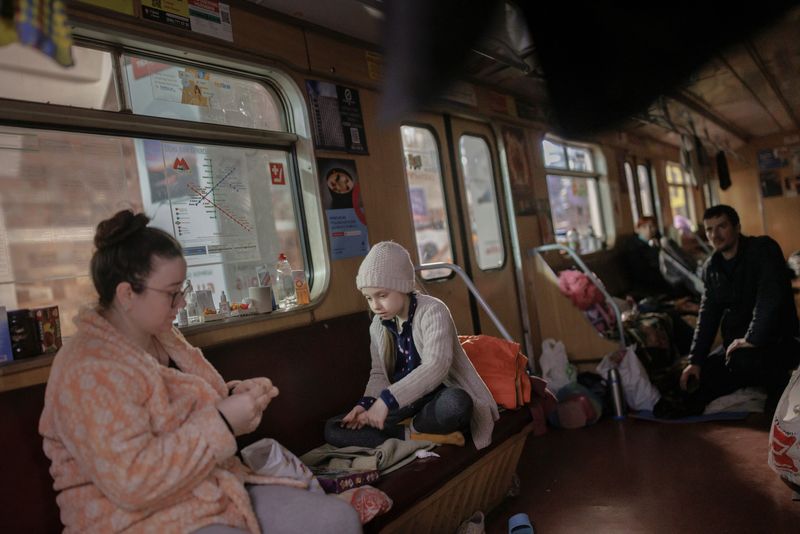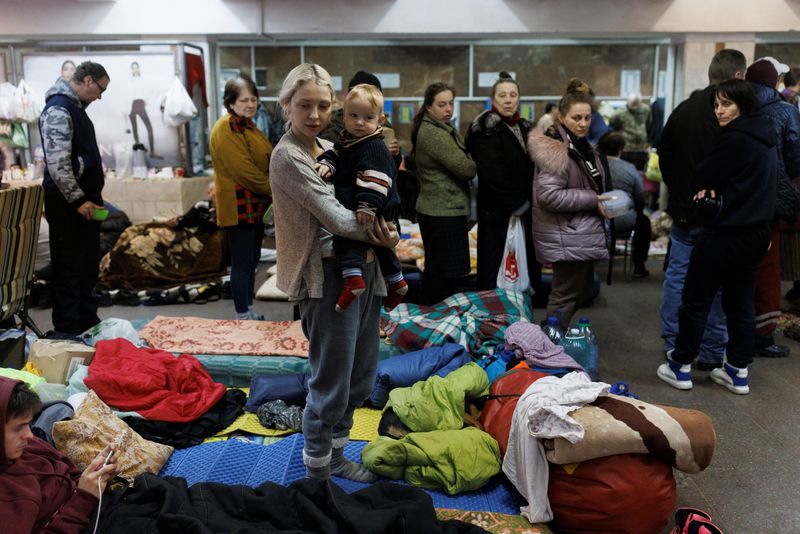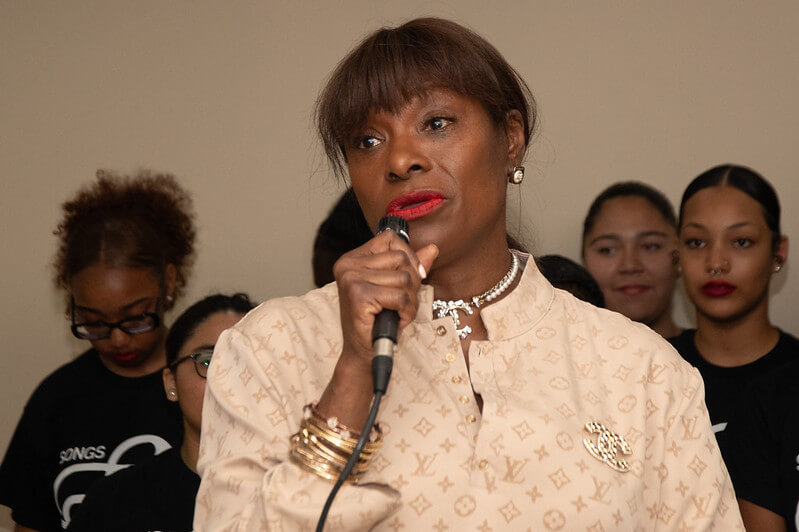KHARKIV (Reuters) – Ukraine’s second-largest city Kharkiv restarted its metro service on Tuesday and asked the hundreds of people who had used the underground as a bomb shelter for the last three months to free up the train carriages, but many said they were still too scared to return home.
Kharkiv came under intense Russian bombardment following Moscow’s Feb. 24 invasion, forcing thousands of civilians to flee to the depths of the metro, with some hunkering down longer term on platforms and in train carriages.
The reopening of the metro is a symbol of Ukraine’s biggest military success over the past few weeks – pushing Russian forces largely out of artillery range of the city, as they did from the capital Kyiv in March.
Still, some residents fear leaving as there’s no guarantee shelling will not resume.
“Everyone is crazily scared, because there is still shelling, the rocket attacks haven’t been stopped,” said Nataliia Lopanska, who has lived in a train wagon for almost three months.
About 240 kms (149 miles) to the south east, Russian forces were engaged in an all-out assault to encircle Ukrainian troops in twin cities straddling a river in eastern Ukraine on Tuesday. Moscow calls its actions in Ukraine a “special operation” to disarm its neighbour.
Ukraine says it posed no threat to Russia and that the invasion was completely unprovoked.
In the Kharkiv metro station, a few people were moving out while others sat on makeshift beds or stood around surrounded by their possessions and in some cases, pets.
One man slept on a mattress on a concrete floor as a public announcement urged people to return home or move onto platforms to free train carriages.
“Our conclusion now is that the trains can be relaunched,” Kharkiv mayor Ihor Terekhov told Reuters TV.
(Writing by Emelia Sithole-Matarise, editing by Alexandra Hudson)























